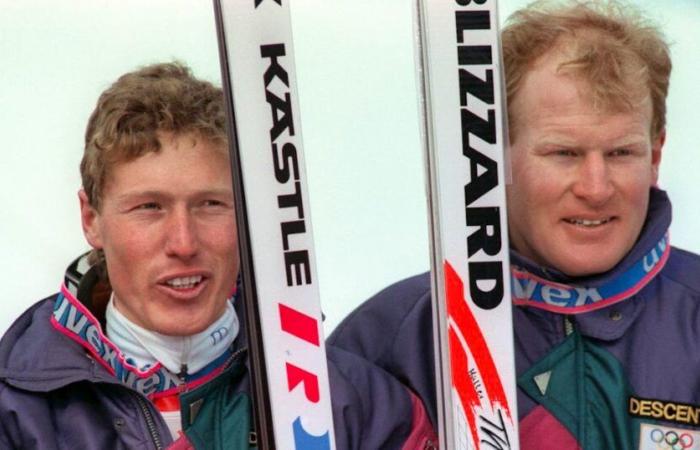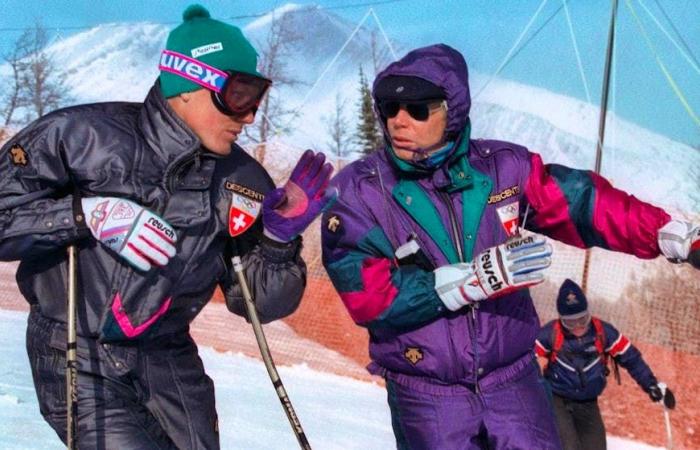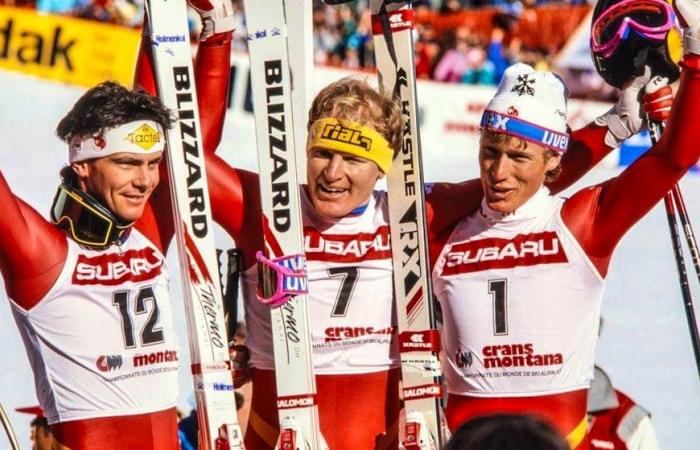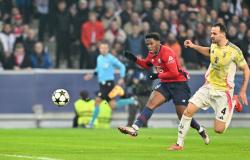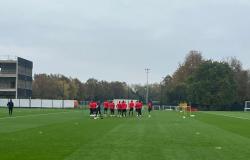Pirmin Zurbriggen and Peter Müller were never the best of friends. In an interview with blue Sport, Zurbriggen reveals how the tensions between them were orchestrated internally and recounts an incident where he really pissed Müller off.
KEYSTONE
Pirmin Zurbriggen is one of the greatest legends of Swiss skiing. The Valaisan won everything in his career before retiring at just 27, exhausted by the sport. One of his main downhill rivals was compatriot Peter “Pitsch” Müller. The two men never got along well. In an interview with blue Sport as part of the 100th anniversary of the equipment manufacturer Kästle, Zurbriggen returns to the real reasons for his conflict with Müller and explains why, one day, he threw the latter’s sneakers from the fourth floor into the fresh snow. Interview.
Today there is a collegial atmosphere within the Swiss ski team. Apparently it was a little different in the past…
“It was quite funny at the time. When I was on the downhill team, you really felt the competition. But on the slalom and giant team, we were best friends. We pushed each other, helped each other and tried to do everything together. A bit like what we see today among the Swiss.”
And in the downhill team?
“The vibe was intentionally different.”
Because of the media?
“No, it was an internal matter. First of all, Pitsch (editor’s note: Peter Müller) wanted a different world. He needed this rivalry to motivate himself. Generally speaking, the descenders didn’t get along very well. And it must be said that I was a bit of an “external”.”
What do you mean by that?
“I was in the technician team. It all started when Karl Frehsner told me that I should only train downhill for two days, no more. I replied, “Are you serious?” And he replied: “Yes, yes, it will be fine.” Then he deliberately mapped out a descent that he knew would suit me perfectly. Result: Pirmin (Zurbriggen, editor’s note) gave them two seconds, and Frehsner sent me home. Fortunately, my teammates understood that it was not my decision. But Frehsner clearly provoked him.”
KEYSTONE
Why did he do this?
“He orchestrated it deliberately to motivate the other riders and put pressure on them. It was his method. He wanted the downhillers to take more risks, to be forced to ski hard. But it put me in an uncomfortable position.”
We know that Peter Müller (24 World Cup victories, including 19 in downhill) and you were not the best friends in the world.
“No, actually.”
There’s this sneaker story at a training camp in Argentina.
“Yes, that’s true. We shared a room and he made a crazy mess of it. I told him: “There is now a line in the middle of the room: anything that sticks out from your side and ends up on mine, I throw it out the window.” And then one day I walked into the bedroom and his sneakers were lying on my side. So I threw them out the third or fourth floor window into the fresh snow.”
And Müller didn’t like it?
“(laughs) He came up and asked me where his sneakers were. I showed him the line and said, “You have your answer.” And he just said, ‘You idiot,’ before going down to dig them out of the snow.”
It seems like a joke between colleagues.
“No, it wasn’t really funny, but rather interesting. We weren’t enemies, but we weren’t close either. We spoke normally. Otherwise, sharing a room would not have been possible. There was no hatred or ‘I don’t want anything to do with you’.
So your relationships weren’t that bad?
“No, a lot of things have been exaggerated. Before Sölden, for example, the media said: “You are both the biggest competitors of the winter in downhill, we are going to take a photo of you.” Pitsch came up and said, “I’m not going to take a picture with you.” I asked him, “What’s wrong?” He just wanted a back to back photo, it was important to him, he needed this rivalry. But once down at the hotel, everything was forgotten.”
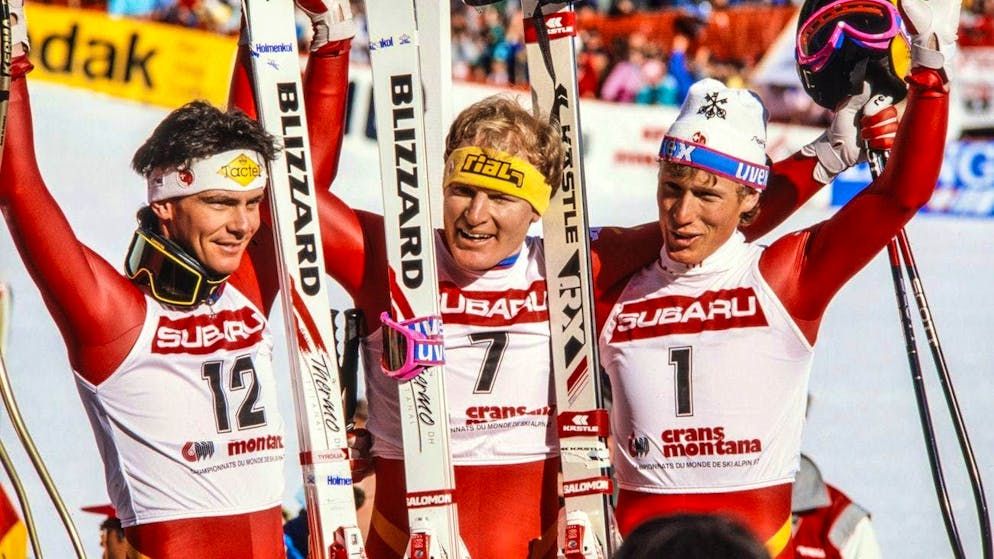
KEYSTONE
Were you sensitive to this kind of thing?
“Yeah, I didn’t need it. I felt better in the team of technicians. Without the giant and slalom team, I would not have become what I was.”
What was the atmosphere like in the technician team?
“I’ll give an example. During one race, there were five Swiss among the first six. At the time, we transmitted every detail of the route to each other by radio. “Be careful here, be careful there.” We had this philosophy: what you give always comes back in one way or another. I have the impression that the current Swiss – Odermatt, Meillard, Cviensel, Tumler, Murisier – work in the same way. They know they benefit a lot from each other, and that’s why they’re so strong.”
Odermatt also maintains good relations with his international rivals, like Cyprien Sarrazin, with whom he parties.
“That didn’t exist in our time. We never ended up together. The coaches or the federation did not even give this possibility. And I didn’t have time for that. It was always: running, recovery, training, and so on. Celebrate after a victory? It was impossible for me. It’s no wonder I retired at 27, I just didn’t have the energy.”
Cyprien Sarrazin: “That evening, Marco was more reasonable than me”
After having exploded in the eyes of the alpine skiing world last season, notably winning the two Kitzbühel descents, Cyprien Sarrazin is preparing to begin the winter of confirmation in Sölden.
23.10.2024

